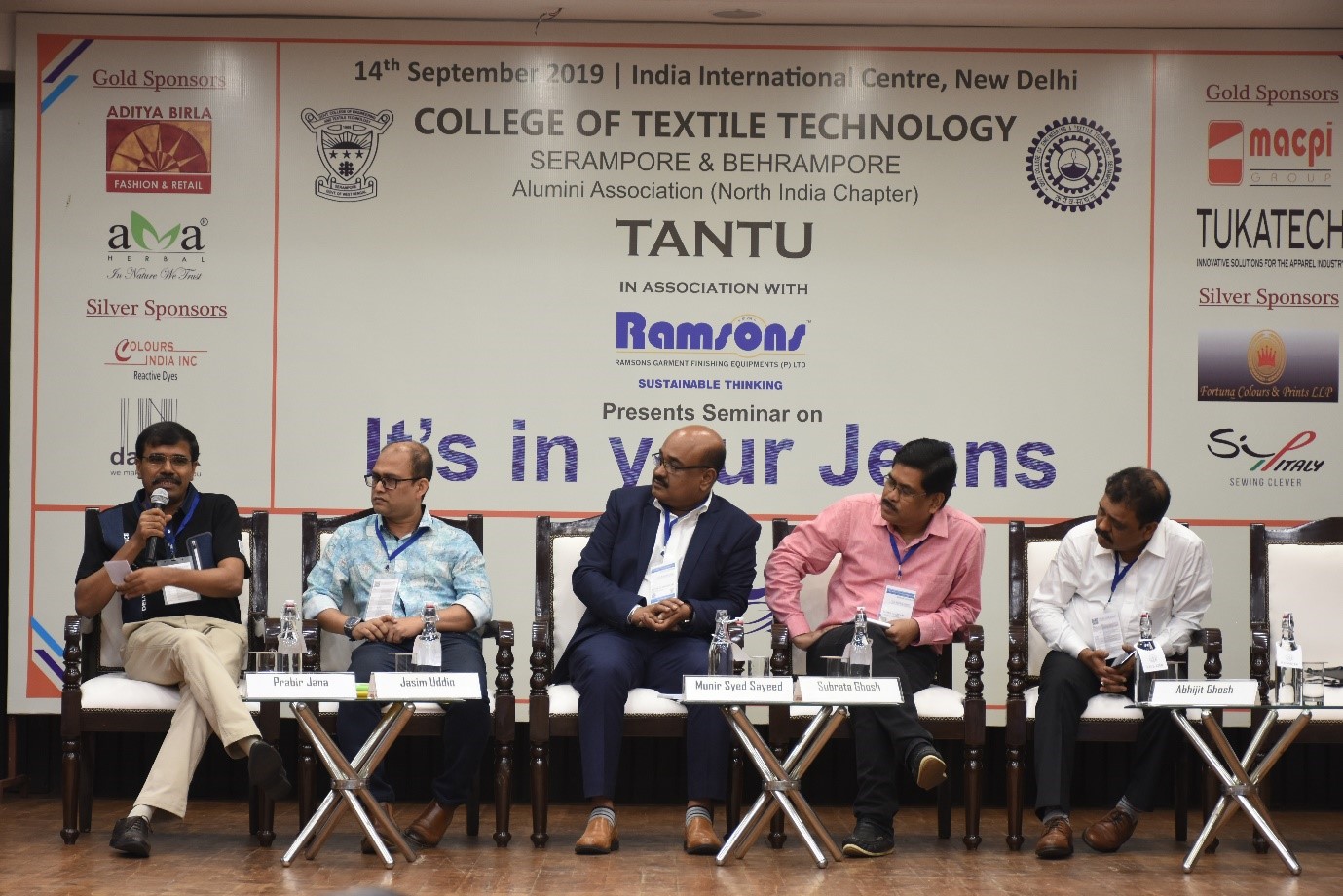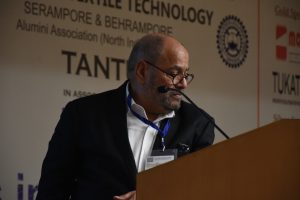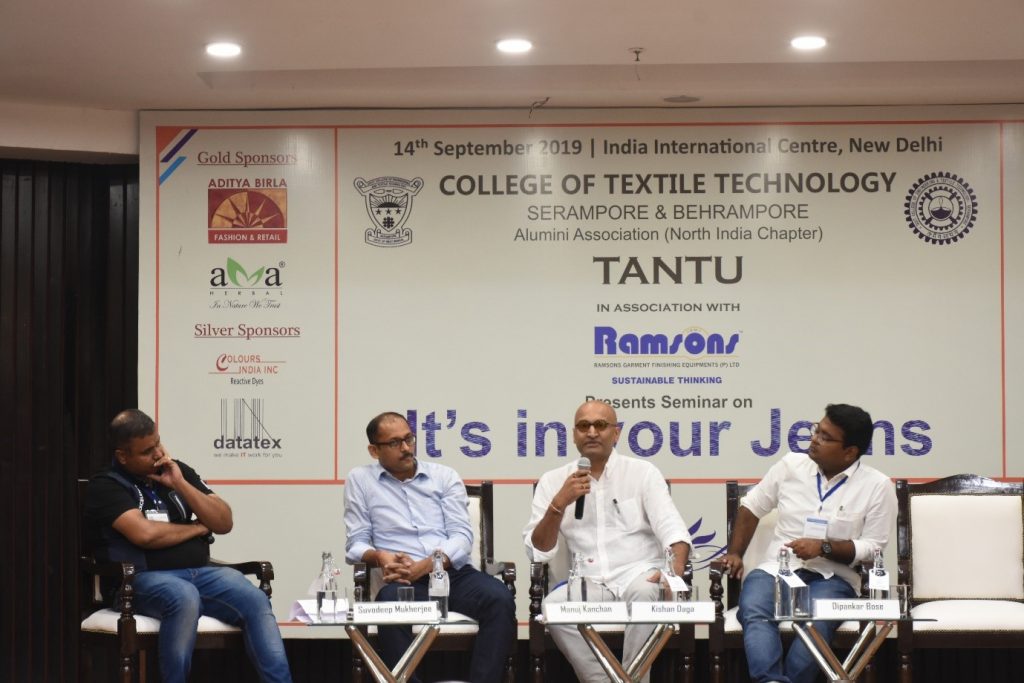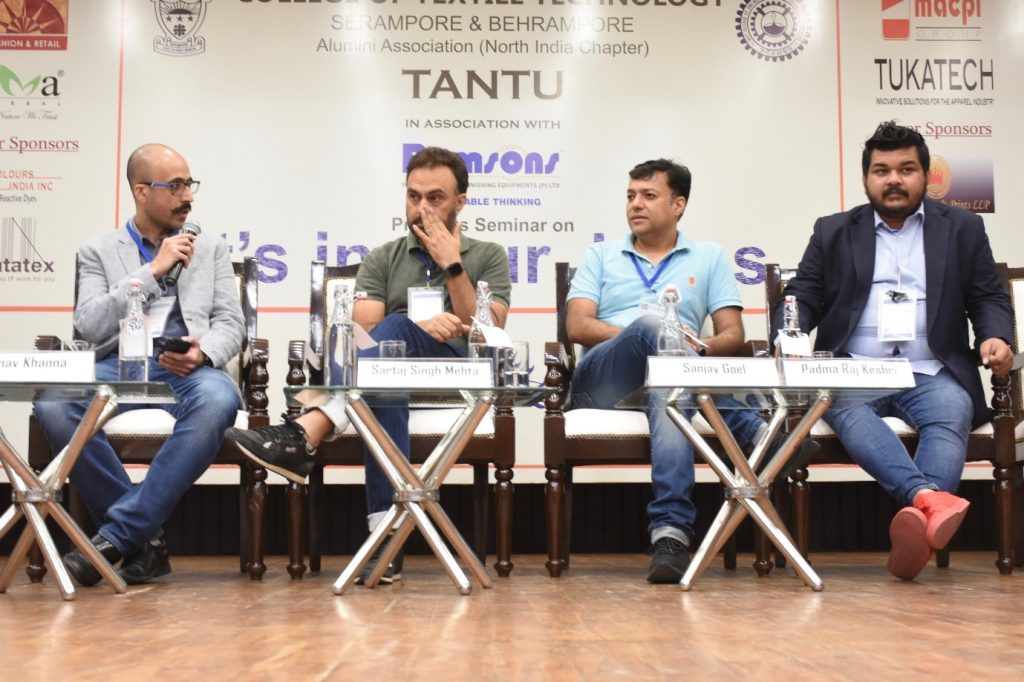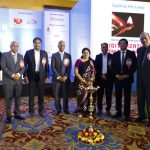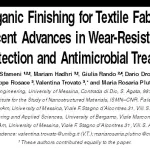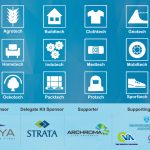TANTU: WHATS THAT?
A decade back the alumni from Textile colleges of Calcutta University, based in north India constituted a forum named “TANTU”….. The thread!!
During British Rule in India, two institutions were established on the banks of Ganga in West Bengal to make a history of learning new way of textiles (Textile Technology). Since then these two institutions at Serampore and Berhampore (CTTB & CTTS), cultured the textiles and apparel being the alma mater of innumerable successful technologists. The students have etched their marks not only in Indian industry and research-based projects but also in the international arena of textiles.
TANTU has successfully concluded its 7th Annual Seminar on the 14th of September at India International Centre, New Delhi, India. The seminar was dedicated to highlighting the problems in the jeans manufacturing industry and the jeans market and to creatively suggest effective solutions in the key areas.
Jeans being a classic has become an integral part of mankind and is likely to stay that way. The reason could be its adaptability. Jeans can be incorporated in our looks in several ways be it in terms of colors, lengths, fits and styles. The popularity of the fabric and the garment is expected to rise, let alone decrease. The 7th seminar of Tantu aptly emphasizes this.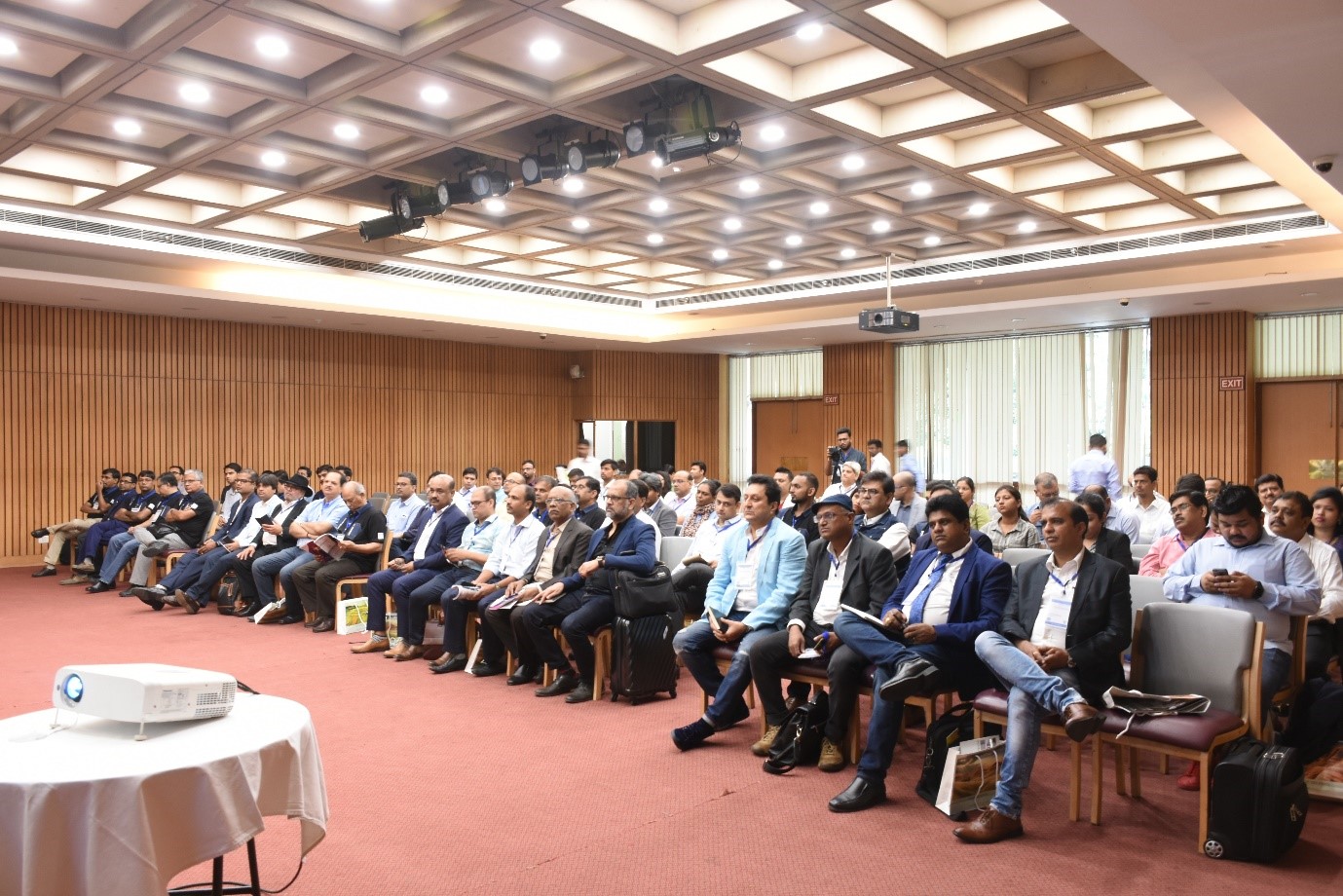
In his welcome speech, Dr. Prabir Jana, the president of TANTU, addressed the history of TANTU and the role it intends to play in the Textile and Apparel industry. Tantu seminars serve the purpose of bridging the gap between the problem experiencers and the solution providers. It stands as a platform to take up the issues and have experts from various backgrounds deliberate over the cause and effects of such issues in the industry. Unlike most forums, TANTU believes that a panel discussion is the right way to confront the problems and deduce solutions. The technicalities of the process that makes a product has been the key area of discussion.
Mr. Sunder Belani, Managing Director, Ramsons, the title sponsor expressed that unlike popular belief that there is a decline in business, there is a change in the way of doing business. There is a shift in the demand towards sustainability. There ingenious one stop laundry solutions incorporate high tech ozonators and nano technology. There Laser Tex and Jet spray Vertostar machines have successfully reduced the water required to wash denim from 60 tonnes to 10 tonnes.
The first panel discussion was titled “Jeans manufacturing – An art or Science”. The panel included eminent members such as Abhijit Ghosh, Munir Syed Sayeed, Jasim Uddin, Subrata Ghosh and was moderated by Dr. Prabir Jana. Most of the panelists agreed that the Jeans manufacturing might have been a science 20 years back, but it is more of an Art now. It all starts with conceptualizing the likes and dislikes of the customer into a design and this art is backed by scientific innovation. The forum also discussed the popularity of striped denim. It was observed that there was a demand for striped denim, but due to complications in its manufacturing it is more costly. However, the real challenge lies in producing checked denim as indigo dyed weft yarns is not fast to denim wash and the resultant look is not very appealing.
M Sai Navneethan from Ramson continued to demonstrate the need of sustainability. He said the next great switch in this direction would be from horizontal to front loading finishing machine and jet spray will reduce water consumption even further. The MLR of the front loading machine is half of that of horizontal loading machine. The Go Green Machine saves upto 95% compared to the conventional washing technologies by using a spray of chemical solution for finishing instead of dumping the product in tonnes of water. Their Conveyorized Dryer is a form of line drying which uses steam resulting in reduced cycle time and water consumption. Their other disruptive technologies include Ozone and lazer technologies.
The next presentation was by Mr. Ram Sareen the CEO of Tukatech. With an experience in the apparel industry for 50 years, he exclaimed that the most important aspect that needs serious intervention is fit. As per him, that fit is the one thing that decides the faith that of a garment taken from the rack to the trial room. In an online space, problems stemming from fit accounts for 54% of returns. Fast fashion has also contributed to an increase in styles and a decrease in stock keeping units. This has resulted to more inventory that ultimately goes into a landfill. Tukatech aims at helping visualizing the different styles without having to produce samples and thereby reducing cost and wastage. The organizations use their software to create virtual 3D samples of garments which can be shared with the buyer for approval and for further improvements. The future will further bridge the gap between virtual and real garments. The new business model entails designing, developing and selling digitally and then making what you sold.
The 2nd panel discussion titled “Jeans Finishing – Environmental Reboot” had innovative minds such as Manuj Kanchan, Dipankar Bose, Kishan Daga, and moderator Suvodeep Mukherjee critiquing the existing Finishing processes and how they are evolving to suit the environment. To understand the severity of the environment issues, Dipankar Bose highlighted that Humans have been on this planet for 3 seconds if we consider the planet to be 24 hours old. The impact of those 3 seconds has been drastic and to some extent irreversible. In a span of 75 years, the chemical waste generated has increased multifold, but all is not lost. The key takeaways from this discussion were that there is an increased awareness among domestic players. There is a real deficit of start-up integrating the processes of fiber to fabric using eco-friendly means throughout. The decline in the market will favour the industry as only the business with the right long-term motives will sustain. The panel also discussed if the carbon footprint of cotton is more than that of manmade fibers. The panel concluded, polyester being a synthetic fiber has a lower carbon footprint because cotton cultivation requires a lot of water and moreover there is a rising demand for recycled synthetic fibers.
The 2nd panel discussion was followed by a presentation by Vinod Krishnamurthy of Fortuna Colors, the man credited with introducing digital print to India. Digital print was better than traditional printing was the purity of the ink used and extent of washing required is less. He spoke about the climate capitalism being the next big thing in which people will be investing more on technologies that in one form or other will contribute to maintaining the ecological balance. His company not only trades and develops new technology in Inkjet printing but also provides services to see to it that their technology is used in the right and in optimum way.
The presentation by sponsors were taken forward by Rahul Mahajan of Datatex were he demonstrated how his IT solutions have helped measure and manage the activities of an organization be it ERP, machine scheduling etc. B.K. Mohanty of Macpi, a final finishing machine provider demonstrated how their machine by the name “Finisher for Trouser” helps combat shrinkage in jeans and folds efficiently the treated garments with high productivity.
Mr. Jay Nagessure from Sip Italy explained that automation was the right way forward. He exclaimed the importance of SMV in the apparel industry and how their wide range of automated/semi-automated machines helps to meet the target SMVs.
The third panel titled “Start up in Blue Space” included entrepreneurs driving the apparel industry. The discussion was moderated by Mr. Pranav Khanna and the panelists included Sartaj Singh Mehta, Sanjay Goel, Padma Raj Keshri. The discussion arrived at the conclusion that key to running a business in this ear is winning the heart of the customers. Businesses are more focused on doing away with the middleman and captivating the customer directly. It is very important to manage sustaining the environment on one hand and sustaining your business on the other.
The seminar ended with a vote of Thanks by Kingshuk Pandit, Vice President of Tantu. It was indeed a time spent well learning about the engaging trends in the Jeans industry in terms of new technologies, perceptions, experiences and processes.
